Julius Caesar’s last words were likely his immediate reaction to the first attack rather than the famous phrase “Et tu, Brute?” which is probably not authentic. Historical sources suggest he spoke nothing after the initial stabbing.
The well-known line “Et tu, Brute?” or in Greek, “καὶ σὺ τέκνον,” appears mainly in later dramatizations and is reported by Suetonius only as hearsay. This makes it unlikely to be Caesar’s true last words. Both Suetonius and Plutarch, ancient historians, agree that Caesar did not speak after the first wound.
More reliable accounts focus on Caesar’s first response to Casca’s attack. Suetonius records Caesar saying in Latin, “ista quidem vis est”, meaning “Truly this is violence!” Plutarch offers a different version, giving a Greek translation of a rebuke: “μιαρώτατε Κάσκα, τί ποιεῖς;” which means “Casca, you villain, what are you doing?”
The discrepancy between sources involves language and phrasing. Plutarch claims the words were originally Latin but records them only in Greek. This inconsistency highlights the difficulty in pinning down Caesar’s precise last utterance. Despite variations, both historians confirm these were the only words Caesar likely spoke during the attack.
After this initial outburst, both Suetonius and Plutarch agree that Caesar remained silent until his death. This consensus suggests that the dramatic exclamation “Et tu, Brute?” is a later invention, popularized through literature and theater rather than grounded in historical record.
- Suetonius reports “Et tu, Brute?” as hearsay, not fact.
- Caesar likely spoke only in response to Casca’s first stab.
- Reported versions of his first words differ: Latin “Truly this is violence” vs. Greek rebuke.
- Caesar did not speak after the initial attack.
- The famous phrase is probably a literary creation, not a true historical quote.
What Were Julius Caesar’s Last Words? The Truth Behind “Et tu, Brute?”
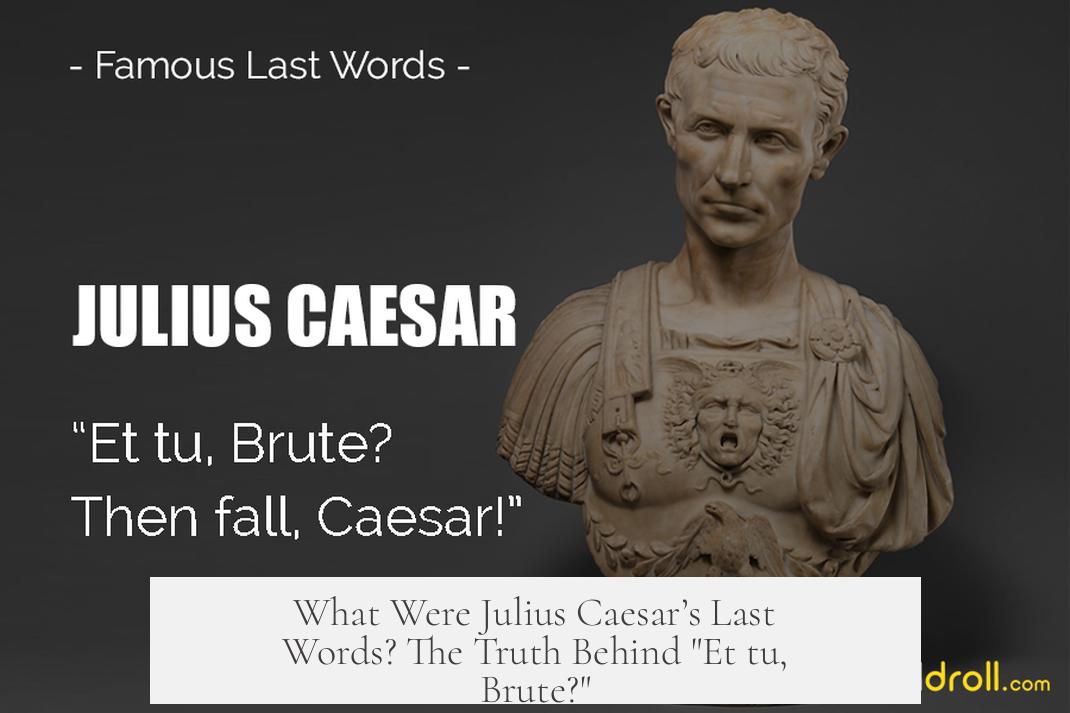
Ask anyone about Julius Caesar’s last words, and most will eagerly recite the dramatic phrase “Et tu, Brute?”—“You too, Brutus?” But is this iconic line really what Caesar uttered as conspirators plunged their daggers into him inside the Roman Senate? The short answer is NO, historians doubt it.
Let’s unwrap what the ancient sources actually say, looking past the Hollywood dramatization to the gritty, factual end of one of history’s most famous figures.
“Et tu, Brute?” — The Famous Phrase’s Origins
This phrase, originally written in Latin as καὶ σὺ τέκνον in Greek translations, finds its earliest mention through Suetonius, an ancient Roman historian. Suetonius doesn’t claim Caesar definitely spoke these words; instead, he shares it as something “people say” Caesar might have uttered. In other words, it’s hearsay not a confirmed fact.
“Probably, though, Suetonius’ version (καὶ σὺ τέκνον) which he only reports as something others say, were not Caesar’s last words.”
So right off the bat, historians like Suetonius carry some doubt about this famous saying. It feels more like a dramatic invention that survived due to Shakespeare’s powerful retelling rather than a direct historical record.
Silence Speaks Louder: Caesar Didn’t Talk After the First Stab
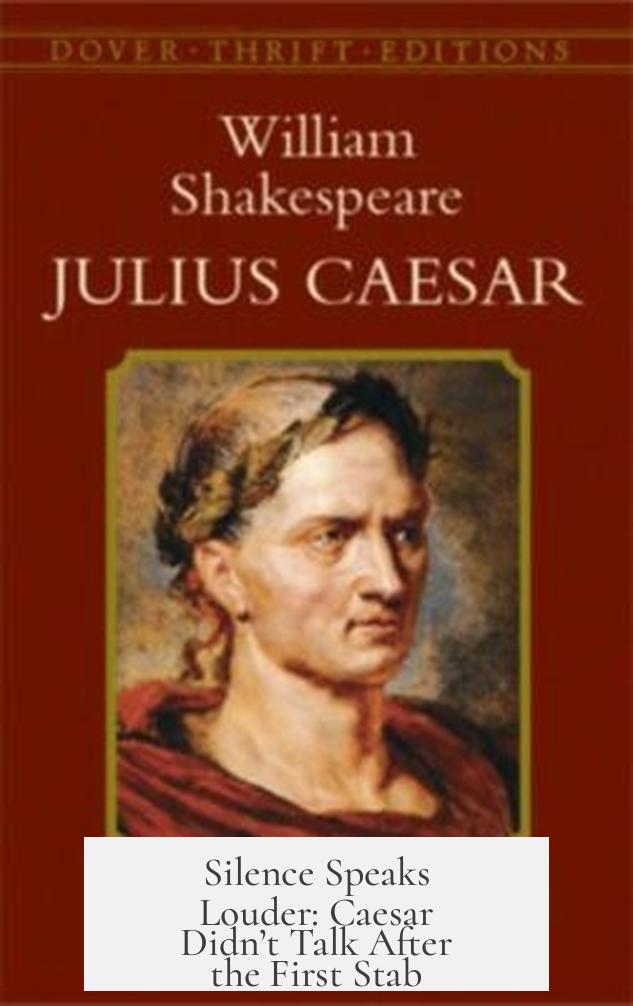
Both Suetonius and Plutarch, another ancient biographer of Caesar, agree on a critical point: after the first blow struck, Caesar remained silent. No poetic speeches, no final tragic line; just silence in the face of betrayal and pain.
“…both he (Suetonius) and Plutarch state as fact that Caesar did not speak after the first blow was struck.”
Why might this matter? Because it implies Caesar’s last words, if any, happened *right at the very start* of the attack. The silence afterward adds a chilling note to the story — as if the man of power was overwhelmed instantly.
What Did Caesar Actually Say? His Response to Casca’s Strike
Looking at eyewitness reports and ancient texts, Caesar’s last audible words likely came from an initial reaction to the first stab made by the conspirator Casca.
Suetonius records this line in Latin as ‘ista quidem vis est’, which roughly translates as “Truly this is violence!” This is a shocked acknowledgment of betrayal and attack.
Plutarch, however, gives a somewhat different take — he quotes Caesar as yelling in Greek:
‘μιαρώτατε Κάσκα, τί ποιεῖς;’ — “Casca, you bastard, what are you doing?”
Notice the aggressive tone here. While the phrase is rendered in Greek, it possibly reflects a passionate, angry surprise directed at the first stabber. Interestingly, Plutarch claims Caesar said it in Latin but provides the Greek version due to his writing style.
Why Do Ancient Authors Disagree on This? Language and Bias
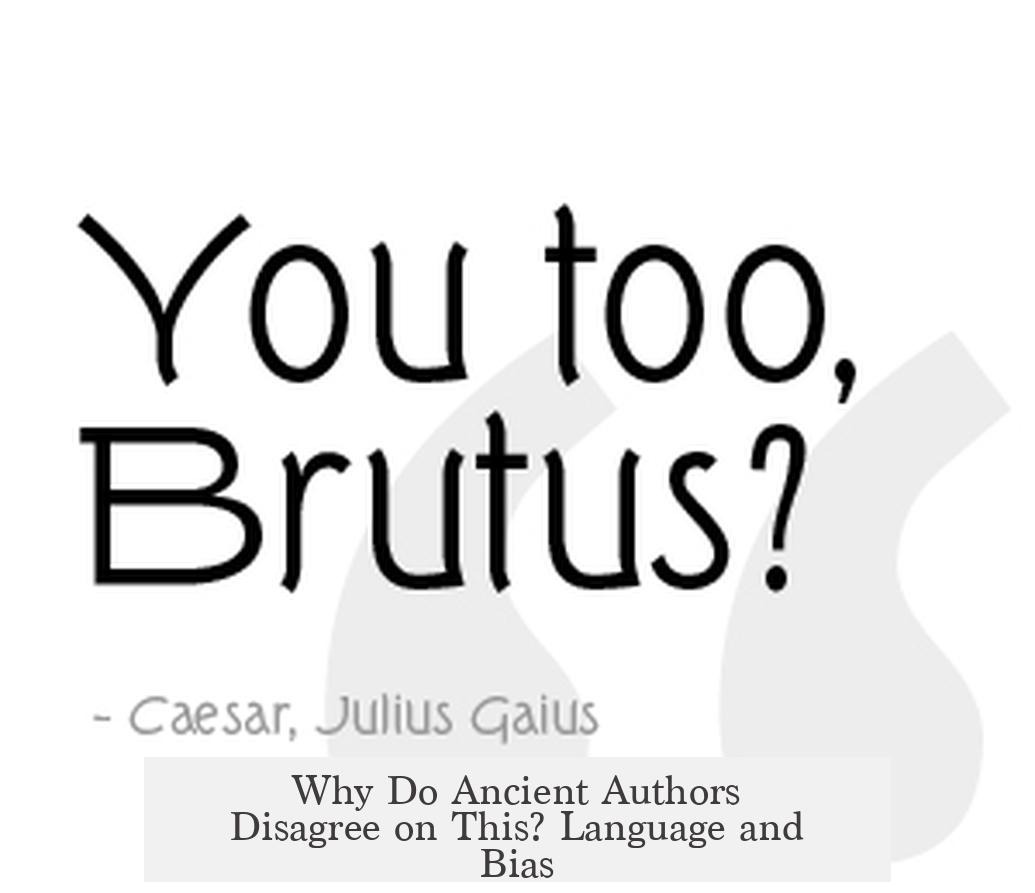
A fun twist is in the language issues. Suetonius writes in Latin, but Plutarch, a Greek writing centuries later, translates or paraphrases Caesar’s words into Greek. This creates room for ambiguity and mistranslation.
Plus, these reports come after the fact, relying on secondhand accounts and oral histories. Given Roman politics’ treacherous nature, some stories about Caesar’s death served political or literary purposes rather than strict historical accuracy.
The Final Consensus: Just a Word or Two—and Then Silence
Taking all of this into account, historians synthesize the evidence into one compelling point:
“After that first outburst, both Suetonius and Plutarch agree that Caesar said nothing.”
That means Caesar’s last words were likely a brief exclamation of shock or anger—his initial reaction to betrayal—before the fatal silence descended. The grandiose Et tu, Brute? most likely belongs to the realm of drama, not history.
So, Should We Toss Shakespeare’s Famous Line? Or Keep It?
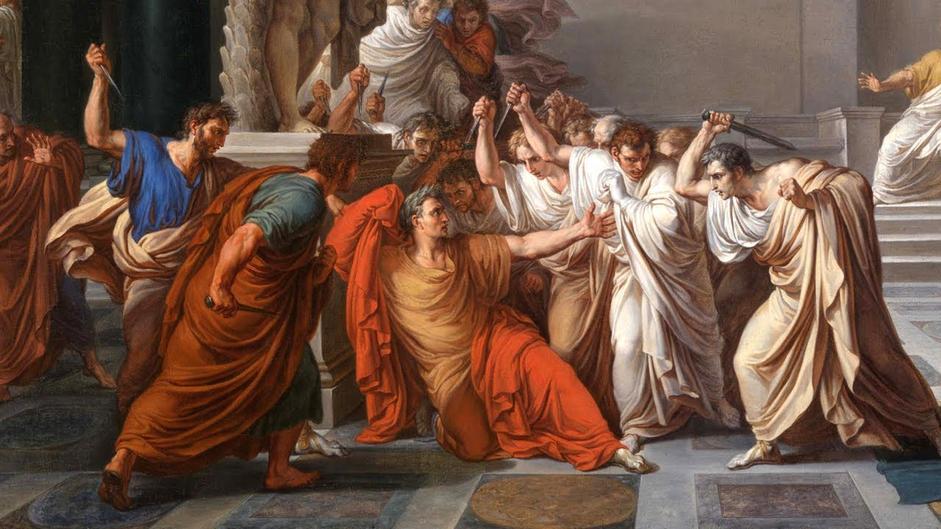
On one hand, knowing the historical reality strips away some of the poetic tragedy. On the other, Shakespeare’s version perfectly captures the profound betrayal—Caesar’s shock, especially from his friend Brutus. It’s a storytelling tool rather than a factual report.
Does that mean Shakespeare lied? Not exactly. Art often blends fact and fiction to convey truth on an emotional level.
What Can We Learn From This?
- Never believe the first legend you hear, even about famous last words. History demands skepticism.
- Language matters. Confusion between Latin and Greek, and hearsay, challenge clear historical records.
- Sometimes silence is telling. Caesar’s silence after the first wound conveys his shock and the suddenness of his fall better than any words could.
Looking Closer: Why Do Last Words Matter At All?
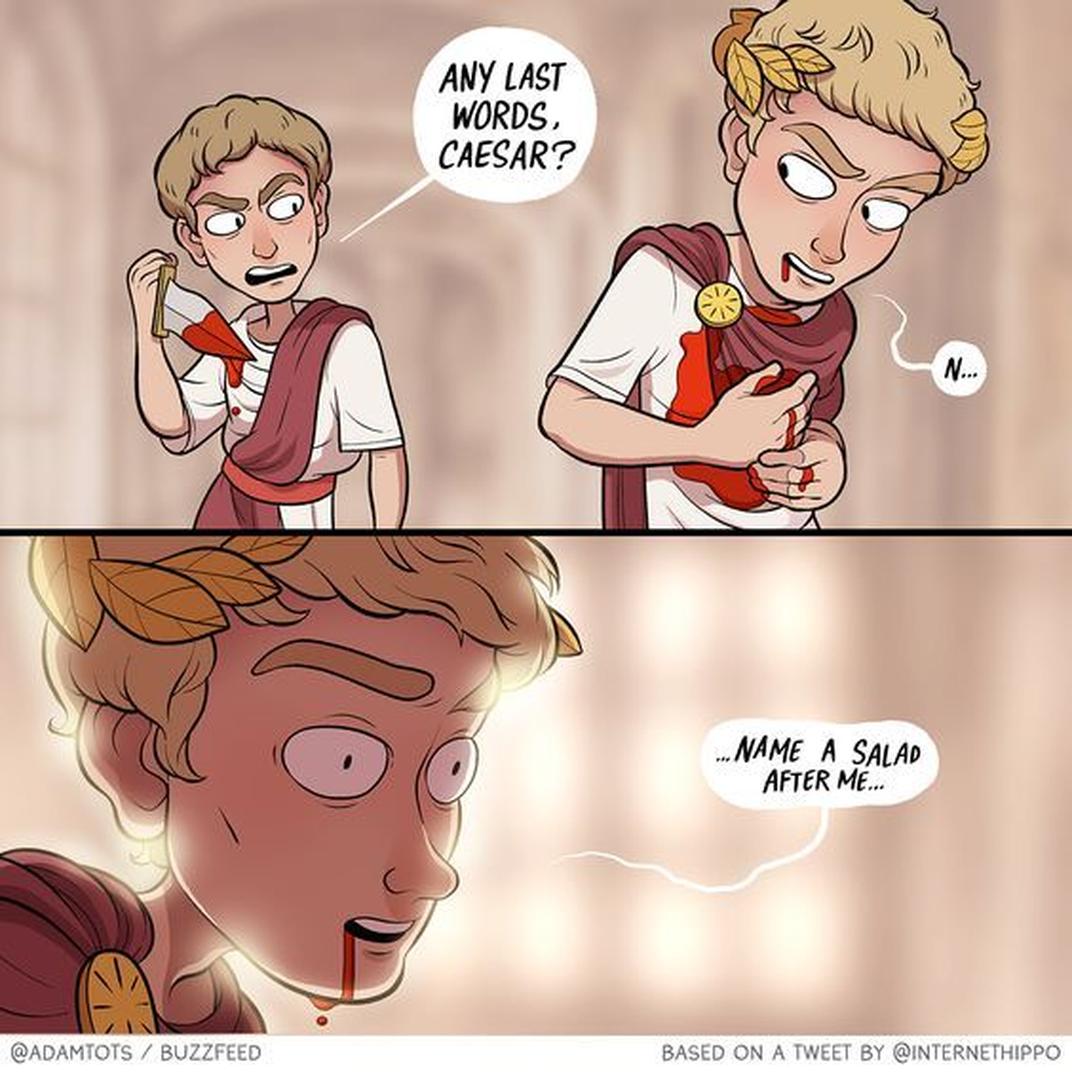
We human beings love to attach meaning to last words. They serve as a final message. In Caesar’s case, his true last words give us insight not into a polished farewell but into betrayal’s raw reality. They remind us that great power doesn’t shield one from sudden collapse.
Ever wonder if you’d have a witty or noble last line at a dramatic moment? History shows us it’s more likely to be messy, abrupt—and maybe just a shout of confusion or frustration.
In Summary
Julius Caesar’s last words were most probably a shocked or angry reaction to Casca’s first stab — something like “Truly this is violence” or “Casca, what are you doing?”—followed by silence. The famed phrase “Et tu, Brute?” is likely a theatrical invention gaining fame through literature and popular culture, not a historically verified utterance.
So next time someone quotes Caesar’s last words, you can smile knowingly and say, “Well, maybe. But the real story is a bit different—and a lot more human.”




